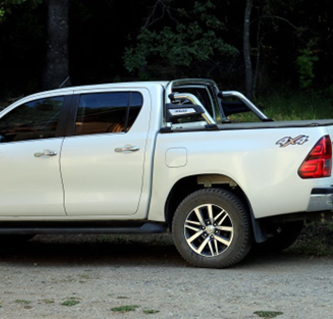
For over two decades double cab pickup trucks have been classified as vans for company car tax purposes, but this is set to end this summer.
HMRC has updated guidance setting out the new benefit in kind tax treatment coming into force on 1 July 2024 which will see a five-fold increase in benefit in kind (BIK) tax bills.
This will hike rates for employers using double cab vehicles on company fleets as they are brought in line with the company car tax regime, albeit there is a transition period. This follows the Coca-Cola Court of Appeal ruling on van classification.
The changes will impact the popularity of these vehicles on company fleets as many are expensive and have high emissions. These are two key elements of the BIK tax charge for company cars.
The change could see the BIK rising from circa £4,500 pa for a “van”, with associated fuel, to over £25,000 as a “car”. Employers will face an NIC charge on the corresponding increase at 13.8%.
These vehicles will continue to be commercial vehicles for VAT purposes, but cars for income tax and BIK purposes.
Pickup trucks are widely used in the farming and construction sectors because of the practicality of their off-road ability and load-carrying ability. Currently, if the payload of the vehicle is over one tonne, it is classified as a van so taxpayers will be disappointed by this change as it has been HMRC's approach since 2002.
Single-cab pickups will still be classified as vans, as long as the weight threshold is met.
HMRC's argument is that double cab pickups are often used as passenger cars, which is the drive for the change.
The defining case was Payne & Ors [2020], brought by Coca-Cola, which disputed HMRC's position that modified vans should be treated as cars for VAT purposes. The Court of Appeal ruled in favour of HMRC.
There will be transitional arrangements for employers who have purchased, leased, or ordered a double cab pickup before 1 July 2024. They will be able to use the previous treatment until the earlier of disposal, lease expiry, or 5 April 2028. The position prior to 1 July 2024 remains unchanged.
The tax paid on double cabs will be based on vehicle emissions, but with electric pickups set to come to market, this will throw another spanner in the works for HMRC.
Time for employers and employees to reconsider their vehicle choices?